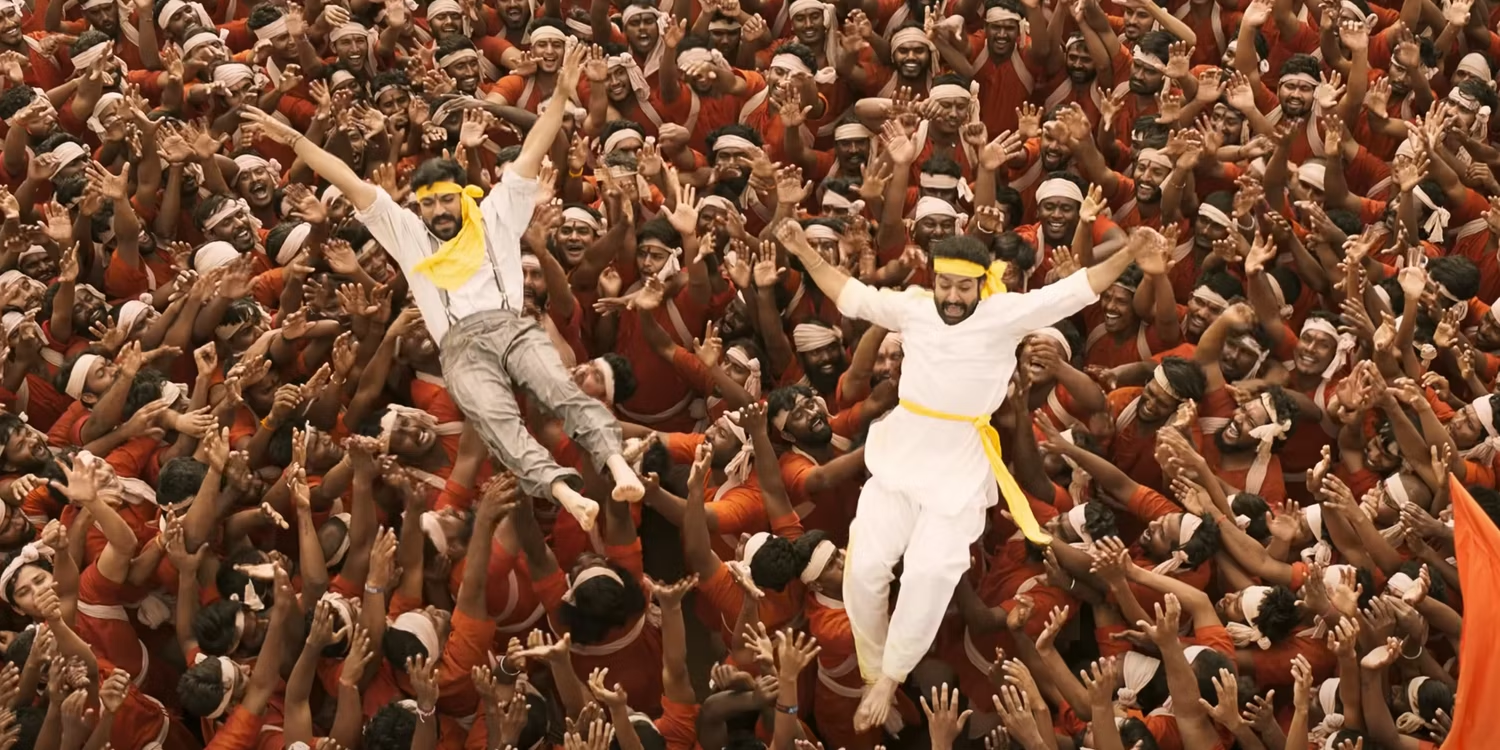
At the end of the film RRR, Raju and bheem engage in a bloody brawl that results in bheem being jailed by colonial officials. Raju receives the much-desired promotion to Special Officer, but not without having to spank his pal in front of a large audience. The performance is intended to shatter the spirit of the uprising, but Bheem's resistance sparks a riot instead. Raju's true motivation is revealed through a flashback: rather than being loyal to the invaders, he is climbing the ranks to be able to steal weapons and arm the indian peasantry. He is given the chance to carry out his plan when tasked with delivering an armaments shipment, but instead chooses to save Bheem.
Why Raju & bheem Save Each Other?
 Raju's choice to go back for bheem represents a significant change in his persona and a pivotal moment in the film RRR. Raju had previously been prepared to give up everything, most notably his pride, in order to be successful in his goal to infiltrate the british army. Raju understands the significance of strong leaders in any resistance movement after witnessing the response to Bheem's lashing. The protesters at Raju's flogging didn't need guns; all they required was someone to demonstrate that it was possible to uphold dignity in the face of colonial persecution.
Raju's choice to go back for bheem represents a significant change in his persona and a pivotal moment in the film RRR. Raju had previously been prepared to give up everything, most notably his pride, in order to be successful in his goal to infiltrate the british army. Raju understands the significance of strong leaders in any resistance movement after witnessing the response to Bheem's lashing. The protesters at Raju's flogging didn't need guns; all they required was someone to demonstrate that it was possible to uphold dignity in the face of colonial persecution.The parallel rescues highlight the importance of the main friendship in RRR. Both Raju and bheem are unable to prioritise their friend's life over their loyalty to the anti-colonial movement. But instead of it just being a case of a personal connection defeating ideology, both men end up rescuing one another since they are both essential to the uprising.
The Meaning of RRR's Last Battle
 In RRR, Raju and bheem stand in for two alternative approaches to overcoming oppression; this parallels the concerns raised by movies like Blood Brothers, but in RRR's far more obnoxious register. bheem is a "tribal" who despises Western culture and is getting ready to launch an assault against colonial rulers. Raju, on the other side, is more Westernized, is portrayed using firearms and repairing motorcycles, and engages in covert operations within the colonial army in an effort to weaken it. They stand for the traditional opposition between trying to change the system from the outside and trying to change it from within.
In RRR, Raju and bheem stand in for two alternative approaches to overcoming oppression; this parallels the concerns raised by movies like Blood Brothers, but in RRR's far more obnoxious register. bheem is a "tribal" who despises Western culture and is getting ready to launch an assault against colonial rulers. Raju, on the other side, is more Westernized, is portrayed using firearms and repairing motorcycles, and engages in covert operations within the colonial army in an effort to weaken it. They stand for the traditional opposition between trying to change the system from the outside and trying to change it from within.




 click and follow Indiaherald WhatsApp channel
click and follow Indiaherald WhatsApp channel